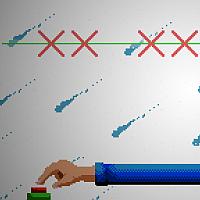

There are no patches, wires, or gels required and it records your heart data right to your smartphone in just 30 seconds. And, Kardia devices can detect more arrhythmias than any other personal EKG. With AliveCor’s personal EKGs, KardiaMobile (single lead), KardiaMobile Card (single lead), and KardiaMobile 6L (six lead), you can check in on your heart from anywhere. While an in-hospital, 12-lead EKG gives doctors the most detailed picture of your heart’s electrical activity, there are also personal EKGs that record fewer leads but can still detect significant rhythm abnormalities. You can take your own EKG at homeįrequent EKGs can be an easy, effective way to monitor your heart function and health, but you don’t always have to go to the doctor’s office to take an EKG. The doctor will review the EKG recording and look for any signs of abnormalities in your heart rate, heart rhythm, or even structural abnormalities. Tilt table test - Tilt table testing allows your doctor to determine the cause of fainting. The machine records your heart’s electrical activity and displays it as waves, seen in the picture above. Cardiologist looking at cardiogram to look at heart rhythm.

If you have symptoms such as chest pain, heart palpitations, breathlessness, rapid pulse, or weakness, an EKG may be used to better understand the underlying causes and help your doctor develop a proper treatment plan.Īn in-hospital EKG machine records 12 leads (or angles) of heart data through 10-12 electrodes, which are placed on a patient’s chest and limbs. Your heart rate and rhythm are both shown on an EKG strip, and a doctor uses both to analyze your heart’s activity. Your heart rhythm is the pattern of your heart rate, which can be normal, too slow ( bradycardia), or too fast ( tachycardia). Many insomnia-related disorders can present significantly differently between patients, and circadian rhythm disorders and melatonin related disorders are. Your heart rate-also called pulse-is the number of times your heart beats per minute, where each beat pumps blood to the rest of your body. What is the difference between heart rate, pulse, and rhythm? An EKG can also provide reassurance that your heart is functioning the way it should be-whether you have a heart condition or you’re just health-conscious. EKGs are one of the best ways to detect and monitor a heart condition before it worsens or becomes a serious health problem. Detecting changes in how your heart is functioning is important, as it may signal early signs of a developing condition. inspired by rhythm heaven steam early access now available > get it now << twitter.


 0 kommentar(er)
0 kommentar(er)
